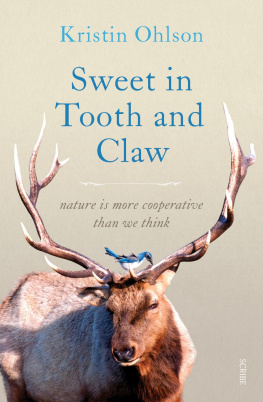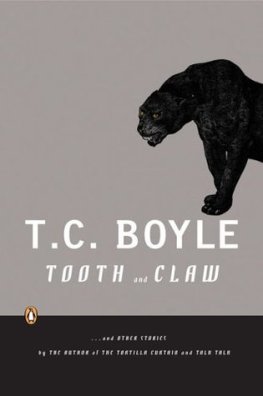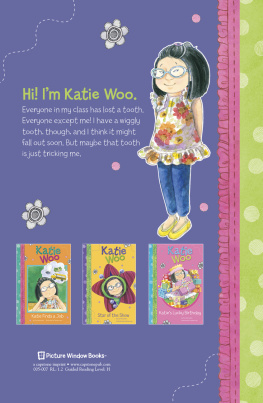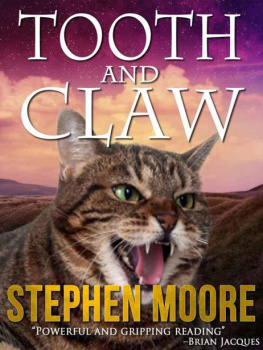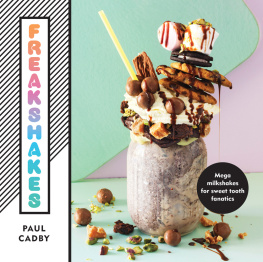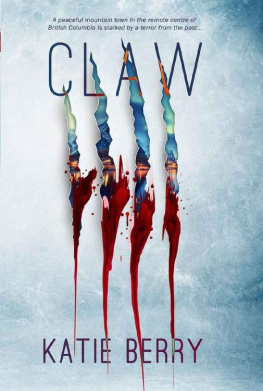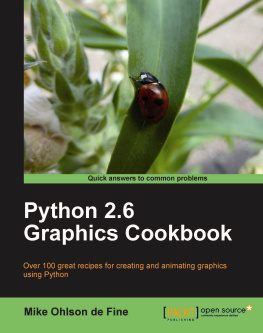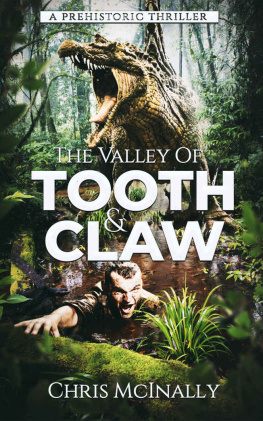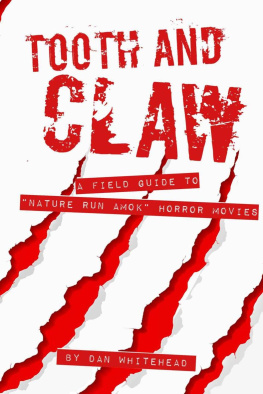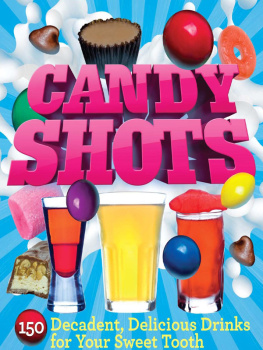Kristin Ohlson - Sweet in Tooth and Claw
Here you can read online Kristin Ohlson - Sweet in Tooth and Claw full text of the book (entire story) in english for free. Download pdf and epub, get meaning, cover and reviews about this ebook. year: 2022, publisher: Scribe, genre: Romance novel. Description of the work, (preface) as well as reviews are available. Best literature library LitArk.com created for fans of good reading and offers a wide selection of genres:
Romance novel
Science fiction
Adventure
Detective
Science
History
Home and family
Prose
Art
Politics
Computer
Non-fiction
Religion
Business
Children
Humor
Choose a favorite category and find really read worthwhile books. Enjoy immersion in the world of imagination, feel the emotions of the characters or learn something new for yourself, make an fascinating discovery.
- Book:Sweet in Tooth and Claw
- Author:
- Publisher:Scribe
- Genre:
- Year:2022
- Rating:4 / 5
- Favourites:Add to favourites
- Your mark:
- 80
- 1
- 2
- 3
- 4
- 5
Sweet in Tooth and Claw: summary, description and annotation
We offer to read an annotation, description, summary or preface (depends on what the author of the book "Sweet in Tooth and Claw" wrote himself). If you haven't found the necessary information about the book — write in the comments, we will try to find it.
Sweet in Tooth and Claw — read online for free the complete book (whole text) full work
Below is the text of the book, divided by pages. System saving the place of the last page read, allows you to conveniently read the book "Sweet in Tooth and Claw" online for free, without having to search again every time where you left off. Put a bookmark, and you can go to the page where you finished reading at any time.
Font size:
Interval:
Bookmark:
Sweet in Tooth and Claw
Kristin Ohlson is a writer based in Portland, Oregon. Her work has appeared in The New York Times , The Christian Science Monitor , Salon , Discover , and elsewhere. She is co-author of the bestselling Kabul Beauty School and author of The Soil Will Save Us: how scientists, farmers, and foodies are healing the soil to save the planet .

Scribe Publications
1820 Edward St, Brunswick, Victoria 3056, Australia
2 John St, Clerkenwell, London, WC1N 2ES, United Kingdom
Published by Scribe 2022
Copyright Kristin Ohlson 2022
All rights reserved. Without limiting the rights under copyright reserved above, no part of this publication may be reproduced, stored in or introduced into a retrieval system, or transmitted, in any form or by any means (electronic, mechanical, photocopying, recording or otherwise) without the prior written permission of the publishers of this book.
The moral rights of the author have been asserted.
Scribe acknowledges Australias First Nations peoples as the traditional owners and custodians of this country, and we pay our respects to their elders, past and present.
978 1 925713 16 9 (Australian edition)
978 1 911617 34 1 (UK edition)
978 1 922586 59 9 (ebook)
Catalogue records for this book are available from the National Library of Australia and the British Library.
scribepublications.com.au
scribepublications.co.uk
For Jamie Rose, my sweetest.
The whole point of our evolution, it seems to me, is for us to find a way to fit back into the world as it is, rather than try to remake the world to fit us.
Brian Doyle
When we love the earth, we are able to love ourselves more fully.
bell hooks
May all living things find sweetness and ease.
my yoga teacher Jeannie Songers
favourite translation of
Loka Samasta Sukhino Bhavantu,
a chant used in meditation
Contents
Chapter 1
Chapter 2
Chapter 3
Chapter 4
Chapter 5
Chapter 6
Chapter 7
Chapter 8
Preface
Years ago, I joined a group of women and a few men at an art gallery in the Murray Hill neighbourhood of Cleveland, Ohio. It was supposed to be an evening of journalling and shared feelings and uplifting conversation stuff that makes me a little skittish, then more than now and I cant even imagine now what convinced me to go. I remember so little about the event was the Lego-like brick street outside slick with ice, as it so often was? Did I still have young children waiting for my return at home? But one trick of the convener stays with me still. We were all sitting on the floor, knee to knee, and she asked us to look around the room and make a mental list of all the blue things in the room. There were quite a few of them, and I quickly jotted them down in my brain. Then we closed our eyes, and one by one, the convener asked us an unexpected question. Name one of the yellow things in the room! As I recall, no one and certainly not I could remember anything yellow because we were all so intently focused on blue. The yellows had faded into the background along with the greens and purples and reds, erased by our inattention.
The exercise buttressed one of the themes the convener would pursue that day, that what we decide to focus on not only informs our view of the world, but will also guide our path through it. I found that idea valuable as my life went on its twists and turns, especially during times of fear or despair. During the recent pandemic, for instance, our walks with the dogs offered many small distracting wonders if I remembered to look for them: moss growing in old lettering on the sidewalk, clouds of excitable bushtits settling into an overgrown shrub, bark peeling like ringlets off a birch tree. All the couples walking hand in hand around the neighbourhood, keeping a respectful six-foot distance from everyone else. Neighbours having tiny, candlelit parties on their lawns throughout the summer and fall. The young musicians who brought a bass and a violin to the small park across the street from my house and played for an hour. People who went into a frenzy of giving, as much as they were able, to others harder hit by the disaster. As the wonderful Fred Rogers (Mr Rogers) said on the first anniversary of 9/11, Look for the helpers. There were so many helpers.
Im naturally drawn to optimism, which is a gift from my sweet father. I actually worried that I might just be soft-headed until I read this quote from activist and professor Angela Davis: I dont think we have any alternative other than remaining optimistic. Optimism is an absolute necessity, even if its only optimism of the will and pessimism of the intellect. But its hard to hang on to optimism. Like others probably you I panic at the growing, undeniable evidence of humanitys damage to the natural world around us, and fear well never get our shit together to do anything about it as our politics and cultures continue to clash in the nastiest of ways. When I wrote my previous book, The Soil Will Save Us , I discovered a wellspring of optimism as I met farmers, ranchers, scientists, and others figuring out how to restore damaged agricultural landscapes. But if the world is characterised by greed and grasping and selfishness, as so many people believe, would the growing numbers of ordinary ecological heroes be enough?
Then I heard Canadian forest ecologist Suzanne Simard speak at the 2015 Urban Soil conference in Los Angeles. For the last thirty years, shes been uncovering the hidden cooperation among trees and other living things in the forest. In the process of writing The Soil Will Save Us , I was thrilled to learn about the life-giving partnership between plants and soil microorganisms. Really, it was the greatest of revelations to find out that plants dont just suck nutrients from the soil and leave it as barren of goodness as a Twinkie, but are engaged in a constant give and take with the billions of tiny organisms there. At the conference, Simard talked about this kind of fertile partnership spread out across the forest landscape, powered by a vast underground skein of fungi. I almost levitated from my seat with excitement.
I drove from Portland to Vancouver that year to talk to Simard and her students, but it took me a few years to find other researchers and landscapes yielding similar insights. As they accrued, I felt as if I was really on to something worth writing about. Most of us have forgotten much of what we learned in science class, but a few concepts persevere and survival of the fittest is certainly one of them. Charles Darwin posited that the species we see around us today are the winners of a challenge thats been going on for nearly four billion years; all living things are the culmination of changes passed on from ancient forebears that made them more successful at harvesting resources, avoiding predation and other dangers, and reproducing. Other thinkers pounced on Darwins findings and enshrined the concept of competition as biologys brutal architect. The idea that competition rules has been lodged in our collective brains ever since. Even if people reject the theory of evolution or cant quite recall how it works, they still think of nature as red in tooth and claw, as the poet Tennyson wailed a vicious and never-ending battle of survival for meagre resources. Even many scientists dont grasp how pervasive cooperative interactions are in nature. Todays ecologists grew up with the paradigm of organisms primarily competing with each other, biologist Richard Karban told me. A lot of ecologists are surprised by how much cooperation exists among plants and other organisms. Theyre not looking for it in their research. Consequently, we seem to have developed a zero-sum-game view of nature, suggesting that whatever we take we humans, or those ravens, cypresses, invasive garlic mustard, or any living thing comes at the expense of other living things and the overall shared environment. As we humans keep growing in number, this view suggests, it must regrettably follow that the rest of the world will suffer.
Next pageFont size:
Interval:
Bookmark:
Similar books «Sweet in Tooth and Claw»
Look at similar books to Sweet in Tooth and Claw. We have selected literature similar in name and meaning in the hope of providing readers with more options to find new, interesting, not yet read works.
Discussion, reviews of the book Sweet in Tooth and Claw and just readers' own opinions. Leave your comments, write what you think about the work, its meaning or the main characters. Specify what exactly you liked and what you didn't like, and why you think so.

